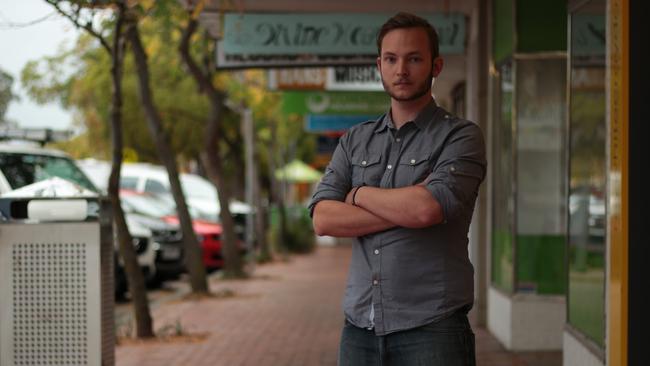The computer search that could be costing you your dream job
IF you have applied for hundreds of jobs with no success, despite having the qualifications, it could be this simple glitch be the issue.
Careers
Don't miss out on the headlines from Careers. Followed categories will be added to My News.
IF you’ve applied for 250 jobs with no success, it could be a computer search that’s letting you down, one expert says.
If you’re not using the right words, you are missing the key(words) to job success, according to career coach Skye London.
“The fact is that most large businesses and recruitment agencies use computer software to help complete the resume screening process,” Ms London said.
“If your resume isn’t matching up to the keywords in the job ad you might not even get a person look at your resume at all.”
Ms London’s comments follow the story of serial job applicant James, who told news.com.au he’d put his hand up for 250 tech industry jobs in the past six months, without a bite.
James, not his real name, said recruiters had told him there was nothing he’d done wrong: his resume and work history were solid, but he was missing out because the jobs demanded three years’ experience — which he doesn’t have.
What he does have is experience working for Amazon in Seattle. Just not three years of it in the roles he’s applying for.
James said the his experience illustrated a skills shortage in the tech industry in Australia was a myth: it’s more “no one wants to train anyone to get that three years to take on a more senior job”.
But a Sydney recruitment industry expert denied all recruitment companies used a computer system to initially check resumes.
“Some do, but most have a talent acquisition team which vet a CV initially. These talent acquisition teams in large companies often have to be across all areas of the business so perhaps won’t know the intricacies of a specific IT role,” the expert said.

James’ story followed the tech industry’s response to Prime Minister Malcolm Turnbull’s decision to restrict 457 visas, the program that allows companies to hire foreign workers to do jobs they can’t find Australians with the right skills to fill.
But Ms London, who co-founded Y Executive, which specialises in career coaching, said on a broader scale, if you are applying for so many jobs without a bite, it’s time to check your resume.
“Employers are looking for the candidate who best suits the skills and experience of the job. They are of course looking at the number of years of experience but more importantly they are looking for experience using exact technology, programs, methodology and industry experience,” she said.
“They will interview the candidates that best match the role given the information on the candidate’s resume.”
“So if you’re not throwing up the terms they are using in their job advertisement, it’s unlikely you’ll get noticed.”
Ms London says the best way to do this is tailor your resume and cover letter to every job you apply for. Every time.
“If you are applying for 250 plus jobs you should look at how effective you are at tailoring your resume. This is vital if you want to secure a job interview,” she said.
“You will need to use the key words featured in the job ad (or job description) and show how your experience matches this.
“You will need to showcase your achievements and strengths and you will need to do this in a clear and concise way.”
Ms London said the biggest mistake she sees in a resume is not including a career profile: a short explanation of your career history to date, outlining the value you offer to the employer, your strengths and most importantly the job you are looking for.
“I always recommend tailoring this section for every job you apply for,” she said.
Ms London said resumes had changed: no longer is a simple list of duties enough to get you in the door for an interview.
“The market is competitive and for the most part job seekers don’t know how to best showcase themselves via their resume,” she said.
She added that in the new employment climate, simple things like ensuring LinkedIn profiles matched your application are a no-brainer.
And be warned, if you’re sending out the same application, not customised for every job and every role, it does get noticed.
“Don’t use a template, and take the time to customise. People do notice if identical resumes and applications are coming up for a range of different roles.”
Meanwhile James’ story struck a chord with many fellow job hunters, with many both in his own industry and further afield — also bemoaning being overlooked because of a lack of experience.
“I’m an Aussie in America at a software dev company, been there almost five years. There’s no way anyone in Australia would have hired me. Now I have this great analyst skill set, but I sure as heck won’t take it back home, I’m happy where I am at now,” said Tina Runswick on Facebook.
Brendan Swift was onto the keywords game, saying “computer program that screens for the magic buzz words HR like to see and hear determines whether you get an interview or not”.
Others pointed the finger at IT recruiters and recruitment agencies.
“My experience in Australia. IT recruitment agencies are not very good at matching jobs to people. IT companies here want experience but don’t want to train their staff, rather than identify potential to train good talent,” Marco Giana wrote.
Matt O’Meara agreed: “Found myself out of work at the end of October last year. Applied for well over 150 jobs in IT, even entry level jobs I could do with my eyes closed and didn’t get so much as a call back. Kept asking for feedback from recruiters as to why I wasn’t being short-listed and none of them returned my calls or emails. Applied for a few jobs direct with the employer and bang. Interviews and offers came in.”
Originally published as The computer search that could be costing you your dream job



